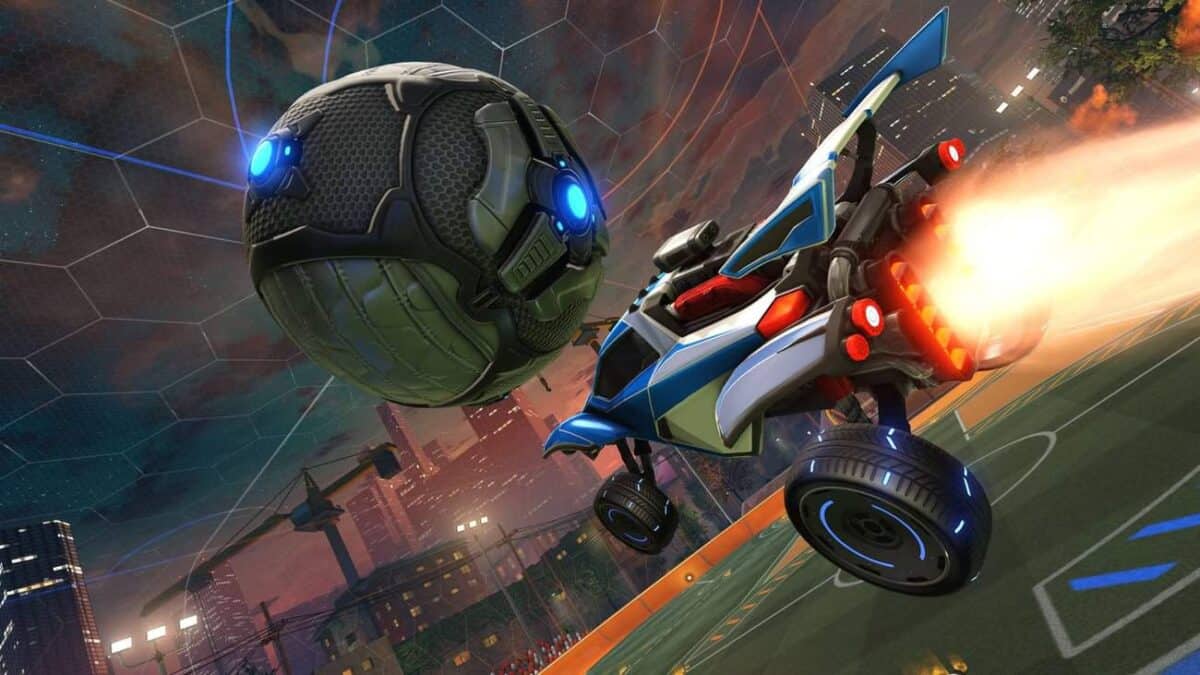Rocket League, developed by Psyonix, has been a staple in the gaming community for its unique blend of soccer and vehicular mayhem. However, a recent announcement has sent shockwaves through the community: player-to-player Rocket League trading removal.
This decision aligns with Epic Games’ overall approach to game cosmetics and item shop policies.
The Rationale Behind Rocket League Trading Removal
Aligning with Epic Games’ Policies
Epic Games, the parent company of Psyonix, has a distinct approach to game cosmetics and item shops. In most of their games, items are not tradable, transferrable, or sellable.
This policy is now being extended to Rocket League.
The change is slated to take effect on December 5 at 4 p.m. PST.
For more information, you can visit the official announcement.
Future Cross-Game Ownership Plans
Another reason cited for the removal of player-to-player trading is the future integration of Rocket League vehicles into other Epic Games titles. This move aims to support cross-game ownership, allowing items acquired in Rocket League to be used in other games under the Epic Games umbrella.
External Resources
Community Reactions
Negative Backlash
The decision has not been well-received by the Rocket League community. Many players have expressed their dissatisfaction on various social media platforms, including Reddit and Twitter.
Petitions and Protests
In response to the announcement, several online petitions have been started, calling for the reversal of the decision. Some players are even organizing in-game protests to make their voices heard.
The Role of Third-Party Trading Platforms
Prior to the announcement, third-party trading platforms were a popular way for players to exchange items. However, these platforms will become obsolete once the change takes effect, as mentioned in the official FAQ.
Economic Implications
Impact on In-Game Economy
The removal of player-to-player trading is expected to have a significant impact on the in-game economy. Previously, rare items could be traded between players, often at high values.
Item Type | Average Trade Value (Before Removal) |
|---|---|
Exotic Wheels | 1000-2000 Credits |
Black Market Decals | 500-1500 Credits |
Titanium White Octane | 10,000-12,000 Credits |
Shift to Item Shop and Blueprints
With player-to-player rocket league trading removal, the focus will likely shift to the Item Shop and the Blueprint system. Players will now have to rely on these methods to acquire new items.
Legal Implications
Terms of Service Changes
With player-to-player Rocket League trading removal, Rocket League’s Terms of Service will undergo revisions. Players will need to agree to these new terms, which will explicitly state that items are not tradable, transferrable, or sellable.
Third-Party Trading Websites
The new policy will render third-party trading websites obsolete. These platforms, which facilitated trades between players, will no longer be able to operate in the context of Rocket League.
This could lead to legal challenges from these third-party entities.
The Future of Rocket League’s Economy
The Rise of the Item Shop
With player-to-player Rocket League trading removal, the Item Shop is expected to gain prominence. Players will likely turn to the shop to acquire new items, leading to a potential increase in microtransactions.
The Blueprint System
The Blueprint system, which allows players to “craft” items using in-game resources, will also see increased usage. This system could become the new standard for acquiring high-value items.
The Trade-In System
Rocket League will still allow players to trade in duplicate or unwanted items for a random new item of higher rarity through the Trade-In system.
This feature will likely become more central to the game’s economy.
Frequently Asked Questions
What happens to my existing traded items?
Can I still trade in duplicate items?
What about third-party trading websites?
The Community’s Coping Mechanisms
Boycotts and Protests
Some segments of the community are calling for boycotts of the Item Shop and Rocket Pass to protest the removal of player-to-player trading.
Adaptation and Acceptance
On the other hand, some players are adapting to the new system, focusing on the Trade-In system and Item Shop as alternative ways to acquire new items.
External Resources
Stay tuned for more updates on this significant change for Rocket League trading removal.





